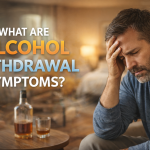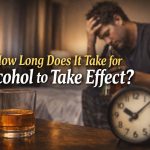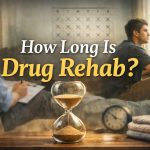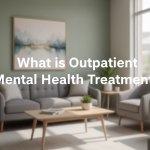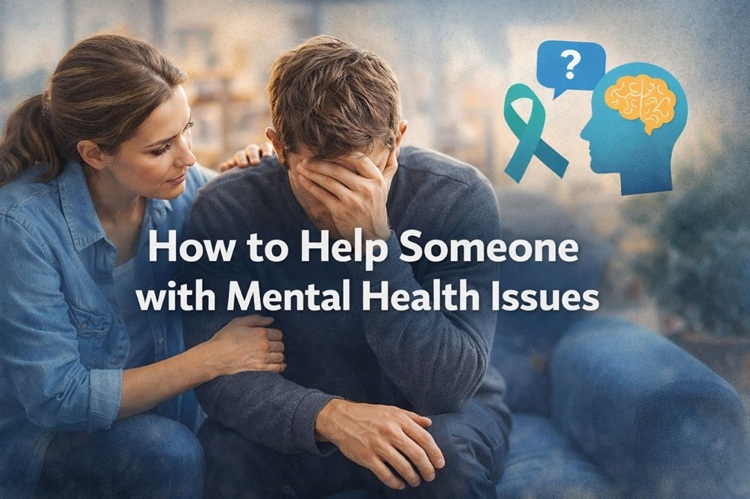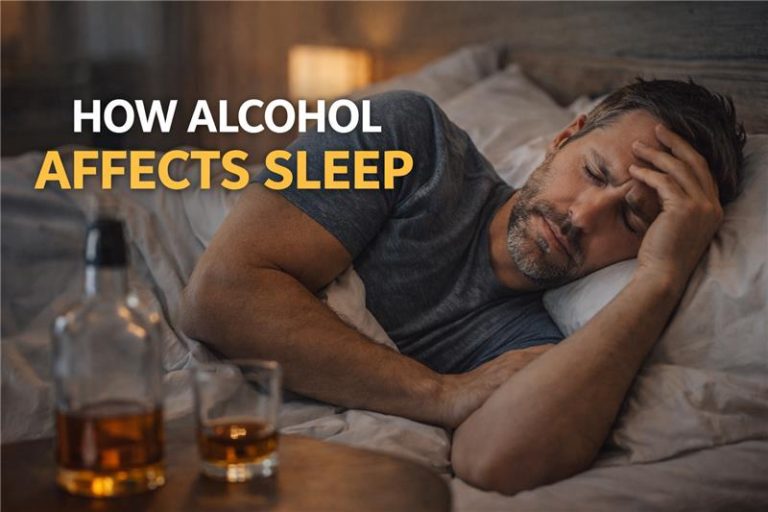The rapid speed of current times has made mental health issues a growing public health concern. The number of people facing mental health challenges continues to rise, which makes treating patients who have substance usage disorders more complex. Dual diagnosis, named co-occurring disorders, demands specific treatment methods that enhance recovery results.
What are Co-Occurring Disorders?
People who have combination disorders present mental health conditions along with substance addiction at the same time. Co-occurring disorder patients face multiple psychiatric conditions that include anxiety along with depression, bipolar disorder, and PTSD, and sometimes involve substance addiction, which might involve alcohol along with opioids and other drugs. These two disorders maintain a complicated sequence that patients need special medical help to overcome.
The Link Between Mental Health and Substance Use
People usually use substances to manage emotional challenges from untreated mental illnesses. Individuals who have depression or anxiety may choose to consume alcohol or drugs as a short-term solution for reducing their symptoms. Mental health conditions often become worse due to substance use and such deterioration intensifies addictive behaviors and psychiatric problems in patients.
Extended substance use changes brain chemistry, which both produces new mental disorders and worsens already existing conditions. Treatment success depends on treating substance use disorder and mental health disorders at the same time because their relationship remains intricate.
100% Confidential Support is Available 24/7
No matter what you’re going through, you’re not alone. Our dedicated team is here to provide a safe, judgment-free space where you can talk openly and honestly. Whether you need emotional support, resources, or just someone to listen.
We’re here for you—completely confidential and always respectful of your privacy. Call us today!
Recognizing the Signs of Co-Occurring Disorders
Diagnosing dual disorders becomes difficult since mental illnesses and substance abuse symptoms share similar indicators. However, some common signs include:
People continue to use substances even when these uses cause adverse outcomes.
- Withdrawal from family, friends, and social activities
- Persistent feelings of sadness, anxiety, or hopelessness
- Sudden mood swings and irritability
- Difficulty maintaining responsibilities at work, school, or home
- People who participate in dangerous self-harming conduct.
- The body goes through withdrawal symptoms when someone abstains from substance use.
- Turning to professional help becomes necessary when someone faces these symptoms because it enables proper treatment of both conditions.

Contact Palm Coast Treatment Solutions
Battling with Drug and Alcohol Addition? Remember, you are not alone and we are here to help you!
The Importance of Integrated Treatment
Addressing the mutual relationship between drug abuse and mental health disorders remains unsuccessful when healthcare providers only manage substance abuse or mental health disorders independently. An integrated treatment program for patients with co-existing conditions requires a detailed method that combines
1. Assessment and Diagnosis
A certified medical professional can evaluate whether multiple disorders exist together. Treatment success depends on obtaining a precise medical diagnosis, which leads to proper healthcare planning.
2. Individualized Treatment Plans
Treatment plans must be customized because each person experiences dual disorders in their own unique way. Expert medical evaluation should determine what types and degrees of mental health and substance abuse disorders patients experience.
3. Dual-Focused Therapy
A combination of Cognitive Behavioral Therapy (CBT) and both Dialectical Behavior Therapy (DBT) and trauma-informed care helps patients treat their double disorders in parallel.
4. Medication Management
Social workers must prescribe medications to specific clients who struggle with mental health symptoms. A psychiatrist who can properly prescribe medicine will also supervise both psychiatric treatment and substance use therapy progression.
5. Holistic Approaches
People with stress and emotional triggers may require additional help from mindfulness along with yoga and meditation as well as other therapeutic healing processes.
6. Support Groups and Aftercare
Different recovery groups, along with 12-step programs and access to aftercare support, provide essential ongoing assistance for maintaining sustained recovery efforts and preventing patients from returning to substance use.
Overcome Addiction with Palm Coast Treatment Solutions.
Book an appointment.
Challenges in Treating Co-Occurring Disorders
Patients who have two active mental conditions need specialized treatment due to these barriers:
- The prejudice toward mental illness, together with incorrect diagnoses, discourages numerous people from seeking help. The symptoms of one disorder frequently hide symptoms of the other so medical professionals incorrectly diagnose the condition.
- When patients receive inadequate multidimensional treatment, they face an increased potential to relapse.
- Dual diagnosis patients require specialized facilities, which are unavailable at every treatment center, so program seekers should look for integrated care specialists.
The Role of Mental Health Awareness
Increasing mental health awareness serves as the primary step to eliminate societal stigmas that surround co-occurring disorders. Adults who learn about the relationship between mental health and substance abuse will quickly start their treatment journey while demanding improved mental healthcare services.
People who encounter co-occurring disorders receive essential support from their families and friends, together with their community network. The creation of a compassionate environment depends on encouraging mental health discussions related to addiction treatment.
The beginning of healing starts with locating therapeutic services to bring wellness.
Getting help from professional counselors stands as the primary move toward achieving recovery when someone has multiple disorders. Our Palm Coast Treatment Solutions provides targeted programs serving patients who need treatment for mental health and substance addiction issues. Our method combines all necessary treatments to deliver sustained recovery care for every patient.

Overcome Addiction with Palm Coast Treatment Solutions.
Book an appointment.
Contact Us Today
Your life should not be subject to control by multiple health conditions. Your journey to recovery begins when you make contact with our understanding staff at Palm Coast Treatment Solutions. Contact us at (386) 284-4151 today; we will provide the necessary support and treatment for recovery. Help is available to all persons who need it, alongside a healthier future that awaits every individual.









